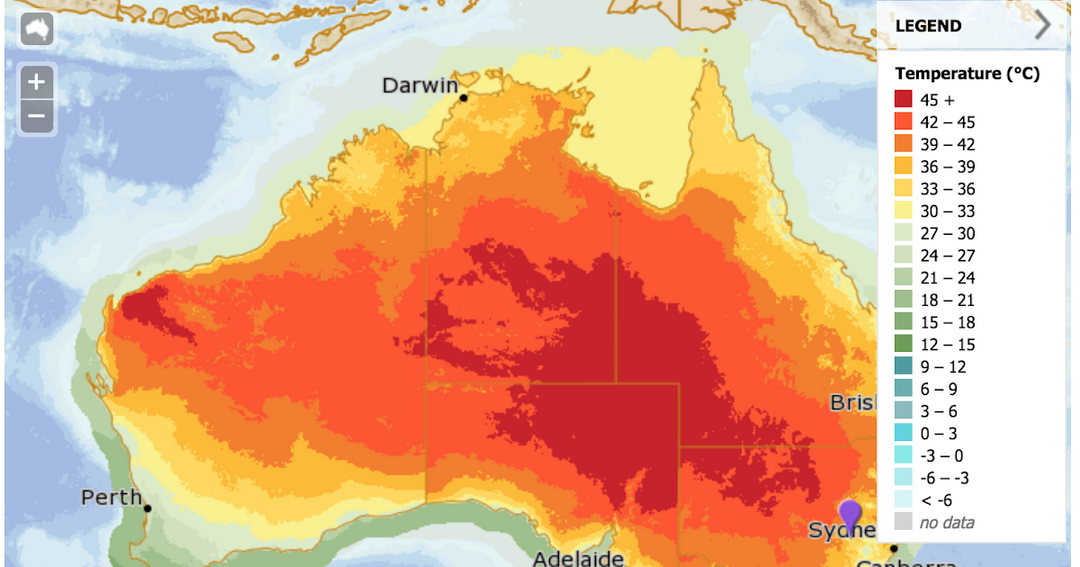
Canberra, Australia - Australia has just experienced its hottest 12-month period on record, culminating in the warmest March ever documented, the Bureau of Meteorology (BOM) confirmed on Thursday. The data, stretching back to 1910, reveals that the 12 months leading to the end of March 2025 averaged a staggering 1.61 degrees Celsius above the historical average. This surpasses the previous record of 1.51 degrees Celsius recorded between January and December 2019.
March 2025 shattered previous records, registering a remarkable 2.41 degrees Celsius above the average, significantly exceeding the 2019 record of 2.03 degrees Celsius. The month also saw the hottest overnight temperatures for March, sitting at 2.53 degrees Celsius above the 1961-1990 average, beating the 2016 record of 2.11 degrees Celsius.
This unprecedented heat follows Australia's warmest spring-summer on record in 2024-25, with the six-month period from September to February averaging 1.98 degrees Celsius above the norm, well above the 1.68 degrees Celsius record set in 2019-2020.
"It's the same shit, different year," commented ANU climate scientist Professor Sarah Perkins-Kirkpatrick, expressing a sentiment of weariness at the repeated breaking of climate records. "I am sure everyone is now getting fatigued that these records keep falling. It's now incredibly predictable."
Dr. Simon Grainger, a senior climatologist at the BOM, highlighted the significance of the 12-month record, noting that exceeding such a record by a tenth of a degree is "pretty remarkable." He explained that March experienced a lack of typical low-pressure systems that usually bring cooler conditions to the southern parts of the country. "We just didn't see temperatures cool off at any time during the month. This is all part of a global pattern of record warm temperatures that we have been seeing."
New South Wales and South Australia endured their hottest March on record for average temperatures, while Victoria experienced its second-hottest. Western Australia recorded its hottest March across average, minimum, and maximum temperatures. Notably, records for the hottest overnight temperatures in March were broken in every state and territory except Tasmania and Victoria. Australia has not experienced a March with below-average temperatures since 2012.
Dr. Andrew King, a climate scientist from the University of Melbourne, emphasized the substantial margin by which the 12-month record was broken, especially considering it is an average across the entire continent. "We are warming the planet at a significant rate now and we continue to put record amounts of CO2 in the atmosphere," he stated, adding concern over the continued record levels of global greenhouse gas emissions from fossil fuel use.
Professor Perkins-Kirkpatrick attributed the record-breaking temperatures to a combination of global heating and conducive weather patterns, noting the persistent calm conditions and high-pressure systems, with the exception of Cyclone Alfred. "But we're just getting hotter and hotter. These records are substantial and, yes, climate change. We can't say for sure that any one season is down to climate change but we know everything is warming consistently."
In terms of rainfall, Queensland experienced its third-wettest March on record. Rainfall amounts were near average in most other regions, except for Tasmania, which recorded its 12th driest March since national rainfall records began in 1900.
[Copyright (c) Global Economic Times. All Rights Reserved.]






























